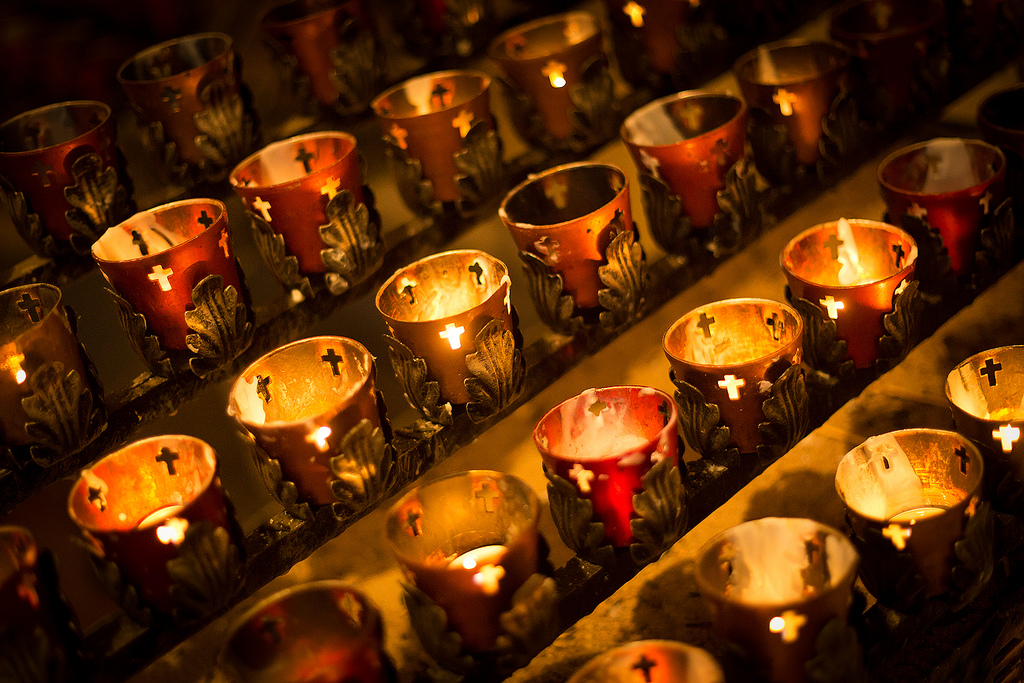On November 28, 1998, the priest presiding at our wedding asked, “Will you accept children lovingly from God and bring them up according to the law of Christ and his Church?” Jill and I answered, “We will.” In the moment, the question didn’t seem especially significant. We had no idea how profoundly it would impact and shape our married life.
Both Jill and I were cradle Catholics who came alive to our faith during college. We shared a vision for a life together on mission, and shortly after our marriage, we landed in Wellington, New Zealand, for the first of many evangelistic adventures. But just before we arrived for those months in the land of kiwi fruit, our life was turned upside down by a diagnosis of infertility. While we were growing as disciples of Christ, we were grieving as Mr. and Mrs.
“We Want to Be Their Parents.” We were confused, angry, and sad, but not defeated. Remembering our wedding day yes to children, we began imagining other ways God might want to bring kids into our home. Private and international adoption, working with birth moms considering abortion, adoption through foster care—each of these choices presented unique opportunities and daunting challenges. Our hearts moved toward foster care, the one option that didn’t seem to be attracting a long line of applicants.
Top Left: Adam, Malachi, Andrew, Christian, and Jill (Summer 2018)
In our first eighteen months as licensed foster parents, thirteen children came through our home. Some would return to their birth families; others would be adopted by another family member. Jill and I decided that if any of our foster kids didn’t have those possibilities, we wanted to be their parents. That’s how our family grew to include four boys, each one as lovable as he is unique.
Andrew is the barefoot snake lover and winner of pie-eating contests. Christian is the imaginative, tree-climbing bookworm. Then there’s Malachi, the high-energy, athletic, and risk-taking socialite. Finally, there’s Adam, the cautious, cerebral Lego master.
Adopting these boys turned out to be the easy part. Becoming a virtuous father for them is a much harder process—not because they are bad kids, but because the challenges they present have often mixed poorly with my dreams and expectations.
Mysteries and Mayhem. Growing up, I was a son who knew what was expected of me and gladly fulfilled those expectations. There wasn’t a rebellious bone in my body. Getting grounded or opposing my parents was foreign to me. Our home life was remarkably free of conflict. It was peaceful and happy, marked by deep mutual respect and great love for one another. From Sunday morning hikes to regular card games to cheering on our favorite sports team, our family genuinely enjoyed being together.
Naturally, this is how I envisioned my own family would be, even if it came together through foster care and adoption. Joy, love, mutual respect. It’s what families are made of, right? Why would ours be any different? But it hasn’t always been that simple.
While there have been times of profound love and happiness, my experience of being a dad has been marked by seasons of pain and heartbreak. What caught me off guard was the sorrow of not recognizing myself—my mannerisms, preferences, or personality traits—in my adopted sons. Kids, even biological ones, don’t come with user manuals, but my boys were an absolute mystery to me.
They love mud, snakes, and danger; I want things neat and tidy, nonreptilian, and safe. But it wasn’t mainly our differences that distressed me. It was the fact that, like many kids from homes without safe and trustworthy parental figures, these boys found it normal to openly challenge authority, treat each other without respect, and damage property like it was their job. My response was to blow up and scream, “You just don’t do this!” What I was really screaming was “You aren’t behaving like I would!”
I was at a loss. How much patience and self-control was it going to take to be a dad? Apparently, a lot.
A Father’s Day Gift. One Father’s Day morning a few years ago, when my boys were between five and ten years old, I reached the limits of my endurance. Even before we were able to start breakfast, a disagreement broke out. It might have been about who would lead the prayer, where someone might sit, or what was for breakfast. Chaos again—and on Father’s Day no less! It was better to walk away than blow up.
I lumbered into my bedroom and wept. Loudly. I knew everyone could hear me, but I didn’t care. Years of heartbreak over “how things are supposed to be” came gushing out. “Why did you do this to me?” I asked God. “I wish I had never said yes.” There it was: my first admission of something akin to regret.
And then, from within, I heard a still, small voice. It whispered, “Gift.” Immediately I thought, “Yes, God, you are right. Jill and I are a gift to these boys. Where would they be without us?” Again came that inner voice. “Not only are you a gift to them, but they are my gift to you.” Life-altering words spoken into a heart hanging on for dear life.
The Gift of Chaos. With those little whispers, I realized that the very chaos of our situation is also God’s gift to me. He is transforming a judgmental, demanding dad-heart into something more patient and understanding, amid the uncertainty that is our family life.
How else was I going to be released from the hold that selfishness, a thirst for praise, and a desire for control had on me? God knew that it would take a calling much bigger than myself and my own resources. Now I can better imagine how Paul might have felt when he begged God to remove the “thorn” from his flesh and was told, “My grace is sufficient for you, for power is made perfect in weakness” (2 Corinthians 12:7, 9).
Since that moment of surrender, my parenting style has changed. Instead of reflexively yelling and doling out punishments, I now value remaining calm and responding in a way that fits my sons’ actual needs and temperaments. Harsh punishments aren’t motivating for them; love, patience, and understanding from Mom and Dad are.
And here’s another change. Now, the joy of being right where God wants me outweighs my old dreams of a “perfect” family.
There’s the joy of watching my eleven-year-old serve at Mass, as he does his best impression of a Little League right fielder: winding his altar server ropes instead of holding the prayer book for the priest.
The joy of lying in bed with my nine-year-old, helping him get to sleep by talking about what heaven might be like—even though the football game on TV awaits.
The joy of repeatedly reminding my ten-year-old to twirl his spaghetti with his fork and not his fingers—and remembering that it’s an honor to be his dad, no matter what he does with his food.
I’ve come to grips with the truth that God never promised me a perfect life, only a perfect Savior. And that Jesus has been—and always will be—for me.
Question: Let's keep the discussion going in the comments below. How has 'chaos' been a blessing in your life? What would be different for you if problems became opportunities for growth, not simply nuisances to be avoided?
Note: This article was originally published in the June 2016 issue of The Word Among Us. (www.wau.org)








